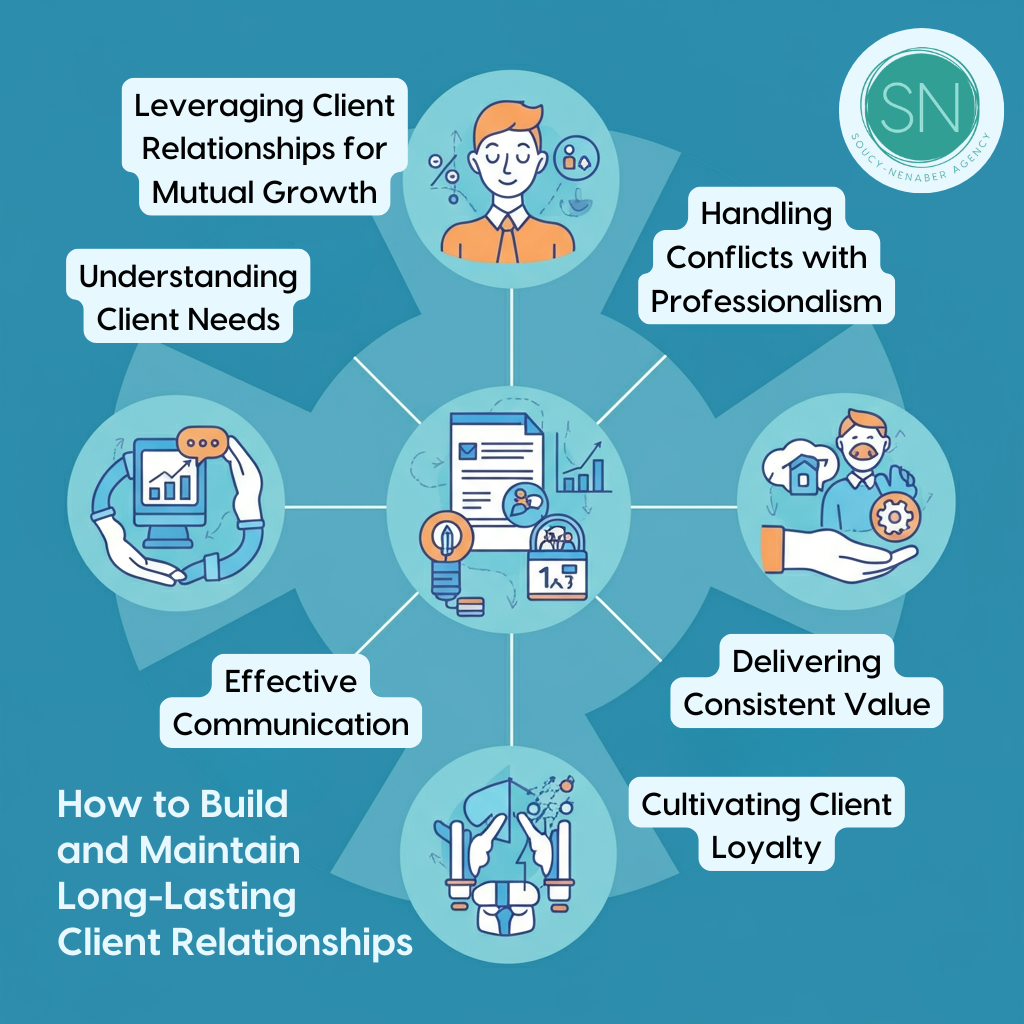Building strong and lasting relationships with clients is the foundation of success in the life insurance industry. For clients, life insurance offers financial security and peace of mind. For agents, forging meaningful connections fosters loyalty, trust, and long-term partnerships. Building client trust is essential, and it takes more than policies and paperwork—it requires intentional effort and a client-first mindset. Below, we’ll explore six key techniques to build and maintain long-lasting client relationships that stand the test of time.
Table of Contents
Importance of Building and Maintaining Strong Client Relationships in the Life Insurance Industry
Building and maintaining strong client relationships is essential in the life insurance industry for both clients and agents. Building client trust is a critical component in this field, as clients rely on insurance professionals to provide financial security for themselves and their loved ones. By fostering genuine relationships, agents can better understand their clients’ unique needs, offering tailored solutions that provide peace of mind. Furthermore, strong client relationships and building client trust lead to long-term loyalty and referrals, which are invaluable for sustainable growth in the competitive insurance market. Ultimately, investing time and effort into building meaningful connections creates a win-win scenario, ensuring that both clients and agents benefit from a foundation of mutual respect and trust. How do you build client trust? Let’s dive in.
1: Understanding Client Needs
Listen First, Speak Later
One of the most effective ways to build trust is by listening. Active listening involves focusing on what your client is saying without interrupting or rushing to offer a solution. Whether they’re outlining financial goals, discussing family concerns, or even sharing uncertainties, give them your full attention. This shows that you genuinely care about their needs.
The Power of Personalization
Life insurance isn’t one-size-fits-all. Each client has unique goals and circumstances. By customizing policy recommendations to fit their individual needs, you not only demonstrate expertise but also show that you value their personal situation. Being able to say, “This plan works best for you” makes all the difference.
Empathy is Key
A client facing the challenge of safeguarding their family’s future wants to feel supported. Empathy means understanding their worries, whether it’s about affordability or choosing the right coverage. When clients see your compassion, they’re more likely to trust and work with you in the long term.
2: Effective Communication
Clear and Transparent Language
Nobody likes industry jargon that leaves them feeling confused or doubtful. Whether it’s explaining a policy or changes to coverage, ensure you communicate in clear, plain language. Transparency builds trust, so be honest about premiums, benefits, and exclusions. A well-informed client is a confident client.
Regular Check-Ins
Life is unpredictable, and client needs often evolve. By touching base regularly—whether every six months or after life changes like marriage or having children—you demonstrate a commitment to keeping their plans current. Small gestures like asking, “Are we still on track with your goals?” can make a big impression.
Be Available
Clients value responsiveness. Whether it’s answering a quick question via email or returning a call promptly, your availability reassures clients that you’re prioritizing their concerns. Even if you don’t have all the answers immediately, just acknowledging their inquiries and setting a timeline for a response is appreciated.
3: Delivering Consistent Value
Exceed Expectations
It’s the little things that clients remember. Sending a birthday message, mailing policy update reminders, or even just checking in to share a relevant insurance tip can make clients feel valued. Going above and beyond fosters strong connections and building client trust.
Educating Your Clients
Clients may not always have full clarity about how life insurance works. Taking the initiative to educate them on aspects like policy types, premiums, or long-term planning turns you into a dependable resource. Share insights that empower them to make good decisions, and they’ll value your partnership even more.
Stay Ahead of Trends
The world of insurance is dynamic, with new products and shifting market trends. Keeping clients informed about opportunities that might benefit them—such as enhancements to their policy—shows them you’re proactive and dedicated to their financial well-being.
4: Handling Conflicts with Professionalism
Maintain Composure
Conflicts, though rare, can arise—whether it’s over misunderstandings about coverage or dissatisfaction with a recommendation. The key to resolving such situations lies in staying calm and composed. Reacting emotionally may escalate the issue, so approach every challenge with professionalism and a focus on solutions.
Listen to Concerns
When clients raise complaints, listen attentively. Avoid interrupting or becoming defensive. Acknowledge their concerns respectfully and take time to understand their perspective. Once they feel heard, they’re more likely to collaborate with you on finding an acceptable resolution.
Turn Problems into Opportunities
When handled well, conflicts can actually strengthen a relationship. For example, if a client finds an error in their coverage, resolving it quickly and apologizing sincerely can build more trust than if the issue had never happened at all. Your problem-solving skills will leave a powerful and positive impression.
5: Cultivating Client Loyalty
Building Long-Term Trust
The core of any strong relationship is trust. Prove yourself trustworthy by being reliable, keeping your promises, and always acting in your client’s best interest. Whether it’s showing up on time for meetings or delivering exactly what you promised, consistent actions breed confidence and help in building client trust.
Recognizing Milestones
Clients appreciate thoughtful gestures that make them feel remembered. Celebrating important dates—such as anniversaries, birthdays, or even their policy purchase date—with a card or small gift can turn routine transactions into meaningful relationships.
Creating a Referral-Friendly Environment
Satisfied clients who trust you are often your best advocates. Foster client loyalty by providing an excellent experience, and they’ll naturally refer you to friends, family, or colleagues. Make it easy for them to do so by offering referral incentives or simply thanking them warmly when they do.
6: Leveraging Client Relationships for Mutual Growth
Upselling and Cross-Selling Thoughtfully
A deep understanding of your clients allows you to offer additional products that genuinely align with their evolving needs. For example, if a client recently had a child, suggesting a children’s rider or increased coverage feels helpful, not pushy.
Encouraging Feedback
Ask clients for feedback on their experience with you. Whether it’s in face-to-face conversations, surveys, or follow-up emails, incorporating constructive criticism into your approach shows clients that you care about improving for their benefit.
Fostering a Community
Clients often want to feel like part of something larger than a transactional relationship. Consider hosting client appreciation events, creating an informational newsletter, or maintaining an active and engaging social media presence. By building a supportive community, you position yourself as more than just an agent—you become a trusted partner.
How SN Agency Supports Continuous Learning and Development for Life Insurance Agents
Building Client Trust Conclusion
Strong client relationships are at the heart of any successful life insurance practice. By understanding your clients’ needs, communicating effectively, consistently delivering value, and approaching conflicts with grace, you solidify your reputation as a dependable and trusted advisor. Cultivating trust and loyalty doesn’t just lead to client retention—it ensures mutual growth and countless personal and professional rewards.
Start applying these strategies to nurture meaningful, lasting connections with your clients. It’s not just good for your business—it’s good for your clients’ peace of mind and financial future. And if you’re looking for resources or further guidance on client relationship strategies, don’t hesitate to explore our tools or schedule a consultation. Remember, every great relationship starts with a single step. Take yours today!






